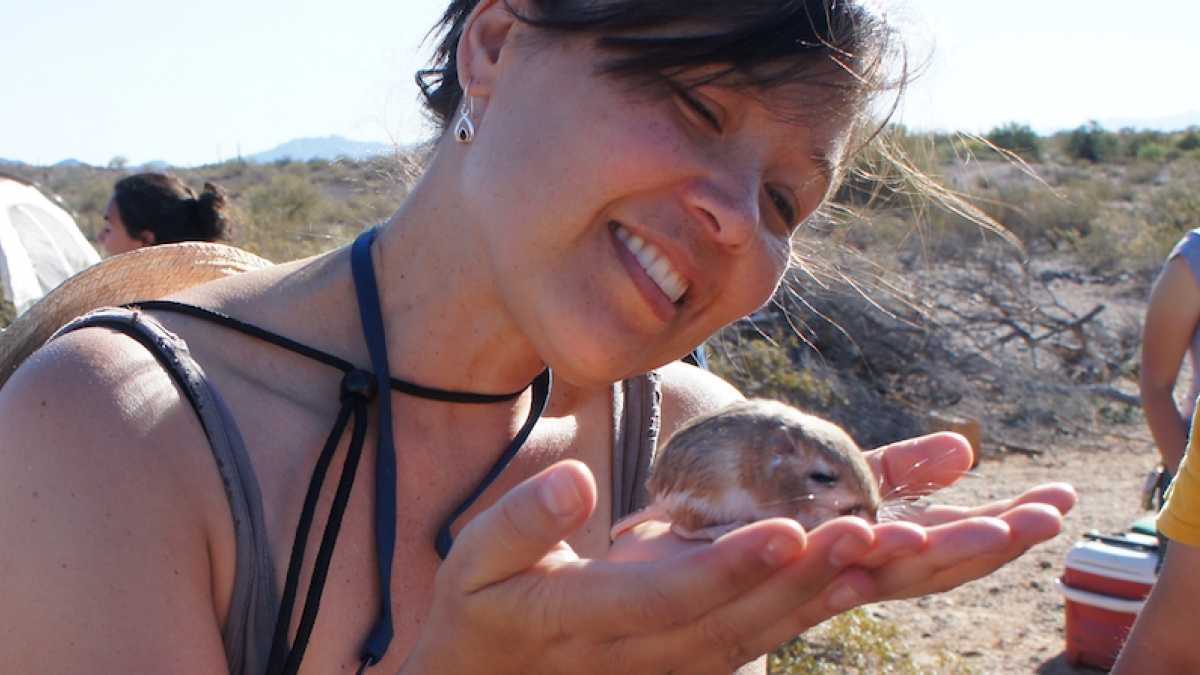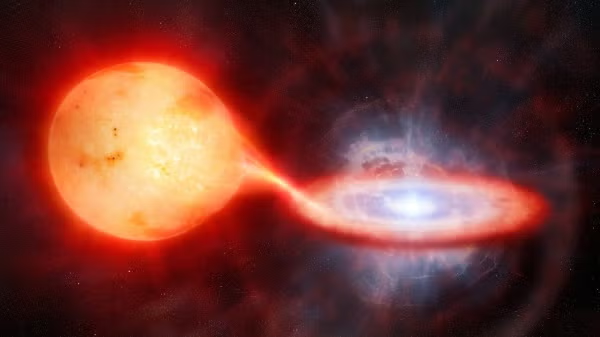School of Life Sciences awarded JEDI seed grants for inclusive STEM education initiatives

School of Life Sciences Professor Sharon Hall will partner with faculty and students across The College to lead targeted initiatives to improve student experience in biology and STEM programs at ASU.
The Arizona State University School of Life Sciences was recently awarded Justice, Equity, Diversity and Inclusion (JEDI) seed grants from The College of Liberal Arts and Sciences.
The grants will support targeted initiatives to improve student outcomes in biology and STEM through inclusive curriculum, teaching and mentorship, both within the School of Life Sciences and in partnership with other schools and departments across The College.
“The natural sciences JEDI seed grant opportunity signals that our deans are serious about improving the diversity and culture of STEM to better match our ASU Charter and the community we represent in Arizona and the nation,” said School of Life Sciences Professor Sharon Hall, who is one of the primary applicants of both awarded proposals.
Hall also serves as the School of Life Sciences JEDI special adviser to the director and as chair of the school’s new JEDI committee.
“Our newly formed (School of Life Sciences) JEDI committee is pressing us to avoid the trap of 'all talk' and move our shared priorities to action,” she said.
“Luckily, the leadership in (the school) is equally excited and motivated to drive tangible, lasting improvements in our unit. These two JEDI seed grants will support several concrete actions that we’re taking as a part of a larger JEDI initiative in life sciences. We’re reviewing everything, from policies and procedures to how we teach to identifying and rooting out implicit biases that fragment us as a community.”
The College's natural sciences division and representatives of its JEDI framework accepted proposals from students, staff, faculty and administrators. The seed grant program is a key part of The College’s JEDI initiative, which seeks to support significant and sustainable contributions to equity and inclusion across The College’s natural sciences division, which includes the School of Life Sciences, the School of Mathematical and Statistical Sciences, the School of Molecular Sciences, the School of Earth and Space Exploration, the Department of Physics and the Department of Psychology.
"We are proud of the work being done within the School of Life Sciences to develop more inclusive STEM programming for students,” said Patrick Kenney, dean of The College. “Through these innovative solutions, we will continue to build an environment where all students can thrive, leading to greater scientific discovery and impact both locally and globally."
RISE Teams
Hall and School of Life Sciences Director Kenro Kusumi were awarded $10,000 for their proposal “RISE Teams: Improving Undergraduate Outcomes in Biology using Research for Inclusive STEM Education (RISE) Best-Practices.”
Also collaborating on the project are School of Life Sciences Professor and Associate Director of graduate programs Emilia Martins; Professor and Associate Director of undergraduate programs Shelley Haydel; Assistant Director of undergraduate programs Joshua Caulkins; Associate Professor and Director of the Research for Inclusive STEM Education (RISE) Center Sara Brownell; Director of the Teaching Innovation Center (TIC) Amy Pate; and Nargish Patwoary, who is serving as the undergraduate adviser to the School of Life Sciences JEDI Committee.
They plan to use the grant funding to promote widespread culture change in the School of Life Sciences, improving unity and encouraging belonging for undergraduate students in all biology and life science majors.
Nationwide trends show that underrepresented minority students leave science majors at significantly higher rates than their classmates, despite entering college with the same level of interest. Student listening sessions align with institutional data to show a lack of belonging across these student communities, which combine with perceived exclusion in introductory courses to lead to discouragement and higher dropout rates.
“The life science disciplines have a long history of discrimination and exclusion in our country and beyond, and we feel remnants of this legacy in (the School of Life Sciences),” said Hall. “Our inclusive ASU charter and diverse undergraduate population can make it seem like we are past this history — but scratch the surface and it’s clear that we are not yet there.”
The project will engage mixed teams of students and faculty to conduct an extensive review of current courses and adopt and train in evidence-based inclusive strategies in pedagogy and curriculum.
Also, beginning this year, three graduate fellows per year will receive summer RA-ships to work collaboratively in teams with faculty who teach introductory biology, general genetics and evolution — the required gateway courses for all biology majors.
These team members will participate in an inclusive curriculum training developed by the TIC and RISE centers and will meet weekly during the summer session to conduct formal course reviews and recommendations.
“The training exercise will include engagement with peer-reviewed literature on the development and maintenance of inclusive STEM classrooms,” said Caulkins, one of the co-developers of the inclusive training initiative. “Giving faculty and graduate student participants the time to reflect on this literature is crucial. The course-based projects they design and implement will help us reduce the achievement gap we so frequently see in STEM courses.”
INCLUDES Training Program
Along with Hall, Associate Professor Christy Till of the School of Earth and Space Exploration and Clinical Assistant Professor Ara Austin of the School of Molecular Sciences were awarded $9,550 for their interdisciplinary proposal “Natural Sciences INCLUsion DEpartmental (INCLUDES) Training Program.”
The grant will help establish an annual workplace climate and inclusion training program to address issues of exclusion within academic STEM communities.
An initial team of nine trainers — three each from the School of Life Sciences, the School of Earth and Space Exploration and the School of Molecular Sciences — will make up a pilot program for The College’s natural science units.
The team will train in bystander intervention and inclusive teaching and mentoring methods. Trainer education will be conducted by the ADVANCEGeo program, which currently hosts inclusion workshops and training for research environments in geoscience, biology, ecology, chemistry and engineering.
“We are excited to launch these new programs to build greater inclusion and accessibility through innovative training programs and new strategies for curricular design,” said Kusumi. “And we are grateful for the ongoing support of The College as we move forward with plans for measurable and lasting change.”
More Science and technology

Astronomers observe ultra-hot nova with unexpected chemistry
A team of astronomers, including Arizona State University Regents Professor Sumner Starrfield, has uncovered an exceptionally hot…
Statewide initiative to speed transfer of ASU lab research to marketplace
A new initiative will help speed the time it takes for groundbreaking biomedical research at Arizona’s three public universities…

ASU research seeks solutions to challenges faced by middle-aged adults
Adults in midlife comprise a large percentage of the country’s population — 24 percent of Arizonans are between 45 and 65 years…